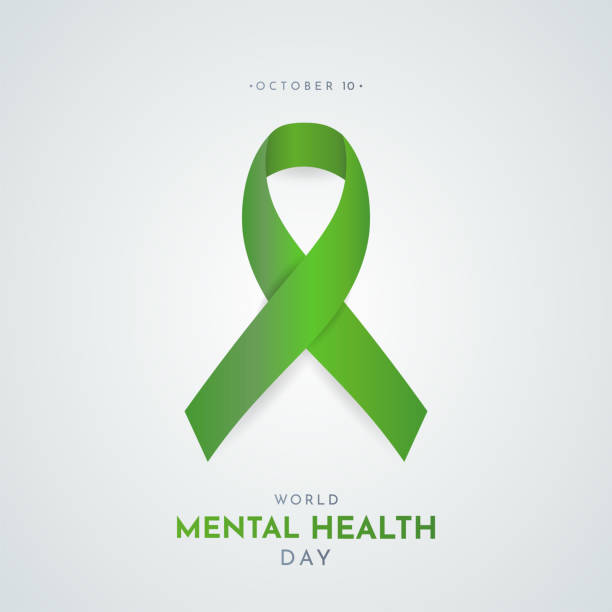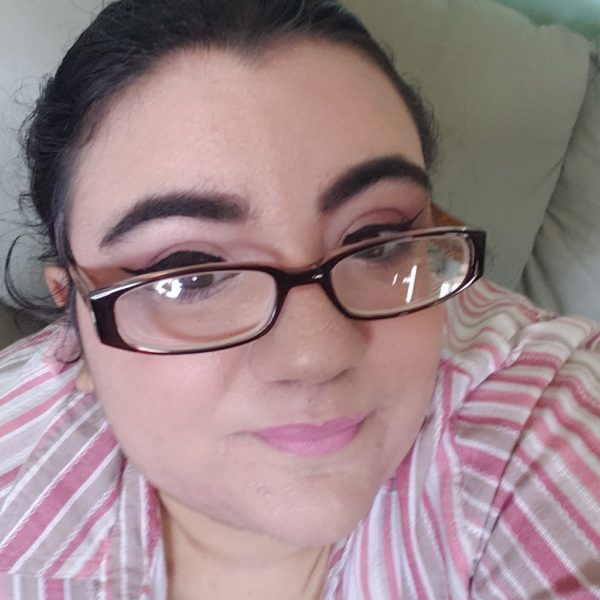What is obsessive-compulsive disorder?
Individuals with OCD are plagued by constant thoughts or fears that can cause them to perform certain rituals or routines. These disturbing thoughts are called “obsessions,” and the rituals are called “compulsions.”
For individuals with OCD, ignoring the urges is not easy, and if they can manage, the urge will come back again later. For individuals with a fear of being infected by germs, it can be common to adopt handwashing ritual that results in chapped or sore skin, and the condition can be accompanied by shame or other feelings of embarrassment related to the symptoms of OCD.
OCD affects both males and females equally and affects approximately 2% of individuals at some time in their lives. Individuals often confuse being a perfectionist with having OCD, but OCD can be an overbearing condition that can interfere with work, relationships, or school and is vastly different to a quest for flawless results on a task.
OCD often interferes with daily life and can cause distress. The World Health Organization (WHO) has listed OCD in the top ten most disabling illnesses in the world. OCD can:
- Prevent one from going to school or work and socializing
- Place a tremendous amount of stress on close relationships
- Cause health complications such as contact dermatitis from compulsive handwashing
- Lead to suicidal thoughts or behavior
Symptoms of OCD
Obsessions are persistent and unwanted thoughts, images, or urges that enter the mind and trigger stress. Common obsessions in OCD include:
- Fear of contamination- not engaging in normal activities, such as shaking hands, for fear of contamination.
- Fear of dirt
- Fear of harm occurring- being plagued with fear, such as forgetting to turn off a stove or lock a door before leaving home.
- Excessive concern with exactness- objects not facing in a particular direction or set in an orderly or symmetrical fashion.
- Abnormal focus on the need for orderliness
- Anxiety related to unwelcome thoughts including anger, or sexual or religious content
- Anxiety related to unwelcome thoughts of hurting others or oneself
- Anxiety related to unwelcome thoughts about cursing in public or other inappropriate behavior
Compulsions are recurrent behaviors or mental acts conducted to supply relief brought on by the distress of obsessions. Common compulsions include:
- Cleaning
- Repeated checking stoves, windows, or doors
- Washing
- Repeating acts
- Repeating words, prayers, or phrases
- Mental rituals
- Ordering or arranging things
OCD can typically be seen in teenage or early adult years. Symptoms have a gradual progression in their severity and can be more extreme in stressful times. OCD is thought of as a lifelong condition and will either be mild, moderate, or severe.
Diagnosis
A diagnosis of OCD is based on symptoms and is made after making sure no other mental illness is going on that might be causing it. Tools like the Yale-Brown Obsessive Compulsive Scale (Y-BOCS) and other criteria in the DSM-5 can be used to assess and rate the severity of OCD. The following steps may be taken to make a diagnosis; elimination of other problems that could contribute to symptoms, bloodwork, and urine lab work to assess thyroid function and to determine if alcohol or drug use is a factor, a psychological interview to evaluate the individual’s feelings, behaviors, symptoms, and thoughts.
Causes of OCD
As of today, there is no root cause for OCD. However, it is thought that OCD results from a combination of the following factors:
- Biological- such as a change in the chemicals in an individual’s brain
- Psychosocial- adverse childhood or adult experiences such as sexual abuse
- Environment- such as infections
Individuals who have a family history of OCD are at an increased risk of developing it themselves. Situations which can contribute to the likelihood of developing OCD include:
- The presence of other mental health conditions or substance use
- Other close family members with OCD
- Traumatic or stressful situations
Treatment for OCD
With OCD being a lifelong condition, a cure is not the result of treatment but of the individual coming to a place where their life is not ruled by the condition and the symptoms are under control.
Therapy can take place in group settings, with family, or one-on-one. Cognitive-behavioral therapy, Exposure and response prevention, and other therapies, such as deep brain stimulation, can help treat OCD.
Certain medications, such as antidepressants and antipsychotics, can help reduce symptoms and distress of OCD. However, for many individuals, finding the right medication(s) can take quite some time, since the doctor may want to try a variety before deciding which works the best, and even then, it can take weeks or months before any results are seen.
There are suicide risks with antidepressants, especially for individuals under twenty-five, even though they are deemed safe by the FDA. While not considered addictive, individuals may develop physical dependence on medication, and any changes of a prescribed treatment dosage can trigger a response, such as withdrawal.
Deep Brain Stimulation (DBS) has been seen to be an effective treatment in addressing severe symptoms of OCD that have not responded favorably to other treatments. Through surgery, a battery-operated medical device is inserted in the brain, and it delivers stimulation to specific areas in the brain that control functions, such as movement.
Myths vs Facts
We’re all a little OCD: You cannot be “a little” OCD. This is a complex and debilitating disorder, affecting around 1-2% of individuals. It most often develops in early adulthood and can make daily life very difficult to navigate.
It’s about being obsessively tidy and clean: According to OCD Action, individuals with OCD experience intensely negative, repetitive, and intrusive thoughts, combined with a chronic feeling of doubt or danger. These feelings form an individual’s obsessions. Common obsessions are fear of dirt or germs; a need for order, symmetry, or arrangement; fears for their safety and the safety of those around them; fears of acting out violent or aggressive thoughts or impulses, and blasphemous or sexual thoughts. These obsessions are difficult to control or rationalize and individuals with OCD struggle to get rid of them.
Those with OCD constantly wash their hands: To quell an obsessive thought or anxiety, individuals with OCD will often repeat their compulsions. Washing hands can be a compulsion but not everyone living with OCD will have this urge. Other compulsions include excessive cleaning, checking, or ordering. It can also be things like counting, hoarding and ritualistic behaviors. Most compulsions are repetitive behaviors intended to neutralize obsessions or unpleasant thoughts or make them go away. Compulsions are often time consuming, preventing an individual from enjoying the activities they value.
They just need to relax more: Individuals with OCD find it difficult to dismiss their anxiety and unpleasant thoughts. In fact, over time and without treatment, the thoughts can become more distressing and take over an individual’s life. This could affect their relationships and ability to function. However, some can hide their OCD and appear to be functioning well.
People with OCD will just have to learn how to live with it: As with any other serious illness, there is no reason for anyone to ‘put up’ with OCD if it is having a detriment on their daily life. CBT can help individuals with OCD to face their fears, helping to control the compulsions. Medication such as SSRIs (selective serotonin reuptake inhibitors) may also be prescribed.
Related Conditions
Body Dysmorphic Disorder: BDD is characterized by an obsession with physical appearance. Unlike simple vanity, BDD is characterized by obsessing over an individual’s appearance and body image, often for many hours a day. Any perceived flaws cause significant distress and ultimately ruin the individual’s ability to function. In extreme cases, BDD can lead to bodily injury either due to infection because of skin picking, excessive exercise, or from having unnecessary surgical procedures to change the individual’s appearance.
Hoarding Disorder: HD is defined by the drive to collect a large amount of useless or valueless items, coupled with extreme distress at the idea of throwing anything away. Over time, this situation can render a space unhealthy or dangerous to be in. HD can negatively impact someone emotionally, physically, socially, and financially, and often leads to distress and disability. In addition, many hoarders cannot see that their actions are potentially harmful, and so may resist diagnosis or treatment.
Trichotillomania: Many individuals develop unhealthy habits such as nail biting or teeth grinding, especially during periods of high stress. Trichotillomania, however, is the compulsive urge to pull out (and possibly eat) your own hair, including eyelashes and eyebrows. Some individuals may consciously pull out their hair, while others may not even be aware that they are doing it. Trichotillomania can create serious injuries, such as repetitive motion injury in the arm or hand, or, if the hair is repeatedly swallowed, the formation of hairballs in the stomach, which can be life threatening if left untreated. A similar illness is excoriation disorder, which is the compulsive urge to scratch or pick at the skin.
Resources:
International OCD Foundation: To find a therapist, learn more about OCD, or find out how you can get involved visit https://iocdf.org/
National Alliance on Mental Illness: Call or text the helpline at 800-950-6264. To find the nearest NAMI location, learn more about mental illnesses, find support, or learn how to get involved visit https://nami.org/home
Talkiatry: Talkiatry is a program that assesses your personal situation and will assign you a psychiatrist tailored to you! To learn more visit: https://www.talkiatry.com
AptiHealth: AptiHealth is a great program to virtually meet with your therapist if you’re uncomfortable doing it in-person. Fill out an application: https://home.aptihealth.com/auth/self-signup/
BetterHelp: BetterHelp is a popular service but for good reason! This application will get you a personalized therapist that you can meet over the phone, in a chatroom, or over a video-chat, all at a reasonable price! To begin the assessment, visit: https://www.betterhelp.com/get-started/
Sources
https://nami.org/About-Mental-Illness/Mental-Health-Conditions/Obsessive-compulsive-Disorder


 by
by 

